Search the Special Collections and Archives Portal
Search Results
Isaac Barron (City of North Las Vegas Councilman) oral history interview conducted by Magdalena Martinez: transcript
Date
Archival Collection
Description
From the Lincy Institute "Perspectives from the COVID-19 Pandemic" Oral History Project (MS-01178) -- Elected official interviews file.
Text
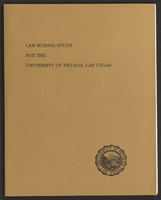
Law School Study for the University of Nevada, Las Vegas (bound)
Date
Archival Collection
Description
A bound version of the "Law School Study for the University of Nevada, Las Vegas" by Dean Willard H. Pedrick, College of Law, Arizona State University, and Professor Lorne Seidman, Chairman, Department of Finance, College of Business and Economics, University of Nevada, Las Vegas. From the University of Nevada, Las Vegas William S. Boyd School of Law Records (UA-00048).
Text
Marilyn Kirkpatrick (Clark County Commisioner) oral history interview conducted by Magdalena Martinez: transcript
Date
Archival Collection
Description
From the Lincy Institute "Perspectives from the COVID-19 Pandemic" Oral History Project (MS-01178) -- Elected official interviews file.
Text
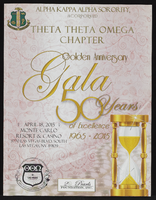
Theta Theta Omega, 50th Golden Anniversary Gala (Monte Carlo Hotel)
Date
Archival Collection
Description
From the Alpha Kappa Alpha Sorority, Incorporated, Theta Theta Omega Chapter Records (MS-01014) -- Ivy Leaf magazines and event souvenir programs file.
Text

Transcript of meeting regarding the Las Vegas Valley Water District, held under the auspices of Las Vegas Chamber of Commerce, October 1, 1948
Date
Archival Collection
Description
Transcript of a meeting to discuss the creation of the Las Vegas Valley Water District
Text
Selena Torres (Nevada Legislature, Assemblywoman) oral history interview conducted by Magdalena Martinez: transcript
Date
Archival Collection
Description
From the Lincy Institute "Perspectives from the COVID-19 Pandemic" Oral History Project (MS-01178) -- Elected official interviews file.
Text

University of Nevada System Board of Regents Law School Feasibility Study
Date
Archival Collection
Description
Folder contains a Law School Feasibility Study for the Board of Regents of the University of Nevada System conducted by management consultants Cresap, McCormick and Paget Inc. From the University of Nevada, Las Vegas William S. Boyd School of Law Records (UA-00048).
Text
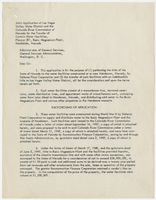
Application by Las Vegas Valley Water District and Colorado River Commission of Nevada to the Administrator of General Services (Washington, D.C.) for transfer of certain water facilities, 1951
Date
Archival Collection
Description
Application of the Las Vegas Valley Water District to obtain the water facilities constructed at or near Henderson, Nevada, by Defense Plant Corporation. Document includes background of application, water district plans, consideration of public interest and benefit, and the terms and conditions for the transfer of the water facilities.
Text
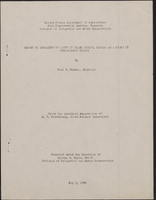
Report on water spreading in Clark County, Nevada as a means of controlling floods, May 9, 1949
Date
Archival Collection
Description
Report on the efficacy of water spreading to disperse flood water in Southern Nevada. Under the immediate Supervision of A. T. Mitchelson, State Project Supervisor. Prepared under the direction of George D. Clyde, Chief, Division of Irrigation and Water Conservation
Text
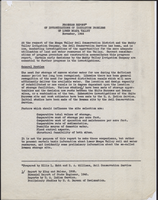
Progress report of investigations of irrigation problems of Lower Moapa Valley, November 1944
Date
Archival Collection
Description
Report of the Lower Moapa Valley soil and water resources.
Text
